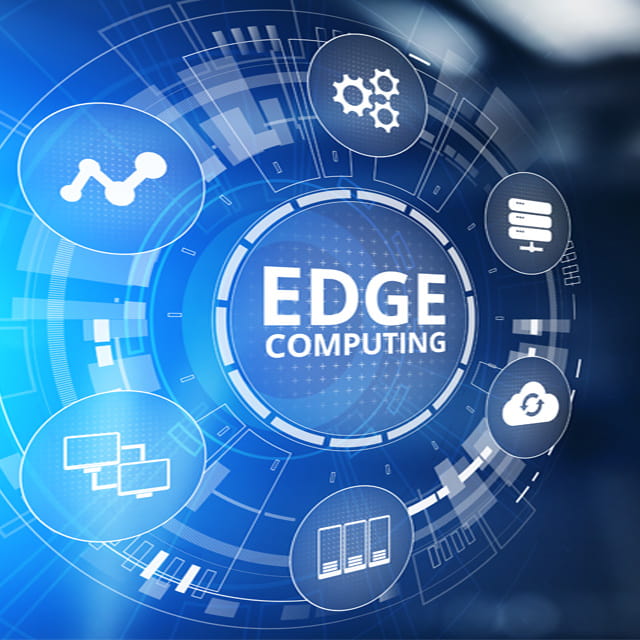How Does the Industry Integrate with Edge Computing? What are its Practical Applications? What Criteria should be Considered when Selecting FSP Edge Computing Products?
Overviews
- What are the industrial applications of edge computing?
- The role of edge computing in the industry
- How does the industry combine edge computing with AI?
- The importance of power supply and power supply solution providers
- FSP edge computing products
Author: FSP Group
In today’s era of information explosion and rapid advancement in smart manufacturing, edge computing has become a key driver of industrial digital transformation. Unlike traditional cloud computing—where data must be transmitted to a central cloud for processing, causing high latency, low efficiency, and increased costs—edge computing enables data to be processed directly at the source (local end). This eliminates the need for transmission to cloud centers, significantly improving data analysis speed and responsiveness while reducing network load and security risks.
FSP Group has long anticipated this trend and invested in the development of edge computing power technologies. The company is committed to providing high-stability, high-efficiency, and high-power-density power solutions to help industrial clients build more real-time, secure, and intelligent production environments.
Wondering how industries can integrate edge computing? What are the real-world applications? And how do you choose the most suitable FSP edge computing product? Let’s explore these questions in detail.
What are the industrial applications of edge computing?
Edge computing finds applications in the industrial sector. Let's consider "quality control in smart manufacturing factories" as an example. In a smart factory producing automotive components, automated quality inspections were initially reliant on cloud computing systems. Upon detection of a product by the inspection instruments on the production line, data was transmitted to cloud servers for analysis, and a decision to halt the production line was pending until the results were received. However, due to network delays, this approach led to the production of a significant number of defective components before receiving feedback. To address this issue, the factory opted for edge computing. Now, all data analysis takes place directly on the inspection instruments on the production line when an issue arises. When the inspection instruments detect subpar components, they can immediately stop the production line through robots with minimal delay. Consequently, with the assistance of edge computing, the factory greatly improved the real-time and accurate nature of its quality control, reducing the production of defective products and associated costs significantly.
The above case illustrates three industrial applications. First is factory automation: As factories move toward automation and intelligence, edge computing plays a crucial role in real-time data analysis and feedback. This allows factories to quickly adjust production processes based on real-time data changes, enhancing production efficiency and reducing costs. Second is data collection and analysis: Industrial equipment generates vast amounts of data. Edge computing enables immediate analysis of this data where it's generated, enabling real-time decision-making rather than transmitting all data to central servers. Lastly, there is robot control: In advanced manufacturing, robots need to respond promptly and perform precise actions. Edge computing provides real-time analysis capabilities, allowing robots to adapt flexibly to various scenarios.
The role of edge computing in the industry
As the trends of Industry 4.0 become increasingly clear, the importance of edge computing has also emerged. As seen in the above examples, edge computing can significantly reduce data transmission delays, ensuring that industrial devices receive real-time feedback for rapid and effective decision-making. Additionally, edge computing can further enhance data security and reduce costs. Reducing long-distance data transmission further means lower energy consumption during data transmission, and it also reduces the risk of data theft or malicious software attacks during the data transmission process.
How does the industry combine edge computing with AI?
AI has become a driving force in the industrial revolution in recent years. When AI meets edge computing, its potential scope and benefits expand significantly. For example, when industrial robots are combined with AI, they can not only execute general commands but also engage in "autonomous learning". By reflecting on previous decisions and their corresponding outcomes, they can automatically optimize processes. FSP has recognized this trend and is prepared to offer a full range of high-stability, high-power, and high-spec power supply products, providing various application devices that combine AI models with edge computing to contribute to the advancement of industrial automation.
The importance of power supply and power supply solution providers
The effective operation of edge computing relies heavily on a stable power supply. A good power supply not only ensures the proper functioning of equipment but also extends its lifespan and ensures data integrity. As a leading power supply provider in the industry, FSP offers a range of high-quality power products to meet the requirements of industrial edge computing.
FSP Edge Computing Product Features
FSP offers high-performance power solutions tailored for edge computing applications, designed to serve diverse fields such as AI, 5G, smart cities, industrial automation, medical equipment, and IoT. Product highlights include:
1. High Power Density and Efficiency: Compact design with outstanding performance, supporting up to 80 Plus Platinum efficiency levels.
2. Global Safety Certifications: Complies with IEC 62368, IEC 60950, and other international safety standards for reliable and stable operation.
3. Wide Temperature and Harsh Environment Tolerance: Operates stably under high altitude or extreme conditions, with surge protection and multiple safety features.
4. Intelligent and Monitorable Design: Certain models support digital communication and remote monitoring for easier system management.
5. High Customization Flexibility: In addition to standard models, FSP also provides semi-customized solutions to meet various industrial needs.
FSP edge computing products
As the industrial demand for stable and high-performance power supplies continues to grow, FSP has introduced two flagship products. First, the FSP3000-20FE boasts the following advantages: 1. High capacity supply: This power supply product offers a total power capacity of up to 3,000 watts, providing robust support for various high-demand applications. 2. High safety standards: It complies with the latest safety and EMC standards, ensuring compliance with regulatory requirements worldwide. This means it can operate smoothly globally without safety concerns. 3. High efficiency: With an 80 Plus Platinum efficiency rating, it ensures superior performance under various load conditions. 4. Excellent protection: Designed for altitudes of up to 5,000 meters, it features high reliability, low ripple and noise, and multiple protection functions, including overcurrent protection, over temperature protection, and over voltage protection. Secondly, the FSP2400-20FM is also worth mentioning. Its key features include a compact structure, ease of integration into various systems, high compatibility, and easy integration with other products.
In summary, FSP’s edge computing products are characterized by high product stability, high power density, and high specifications (compliant with 80 PLUS/IEC 62368/IEC 60950 and other safety certifications). These products feature multiple patents and quality certifications, ensuring that customers can obtain the most efficient and optimal power solutions. FSP is a reliable partner in the industrial sector.
Know more about edge computing applications
Related Articles
About FSP
FSP Group is one of the global leading power supply manufacturer. Since 1993, FSP Group has followed the management conception “service, profession, and innovation” to fulfill its responsibilities as a green energy resolution supplier.






